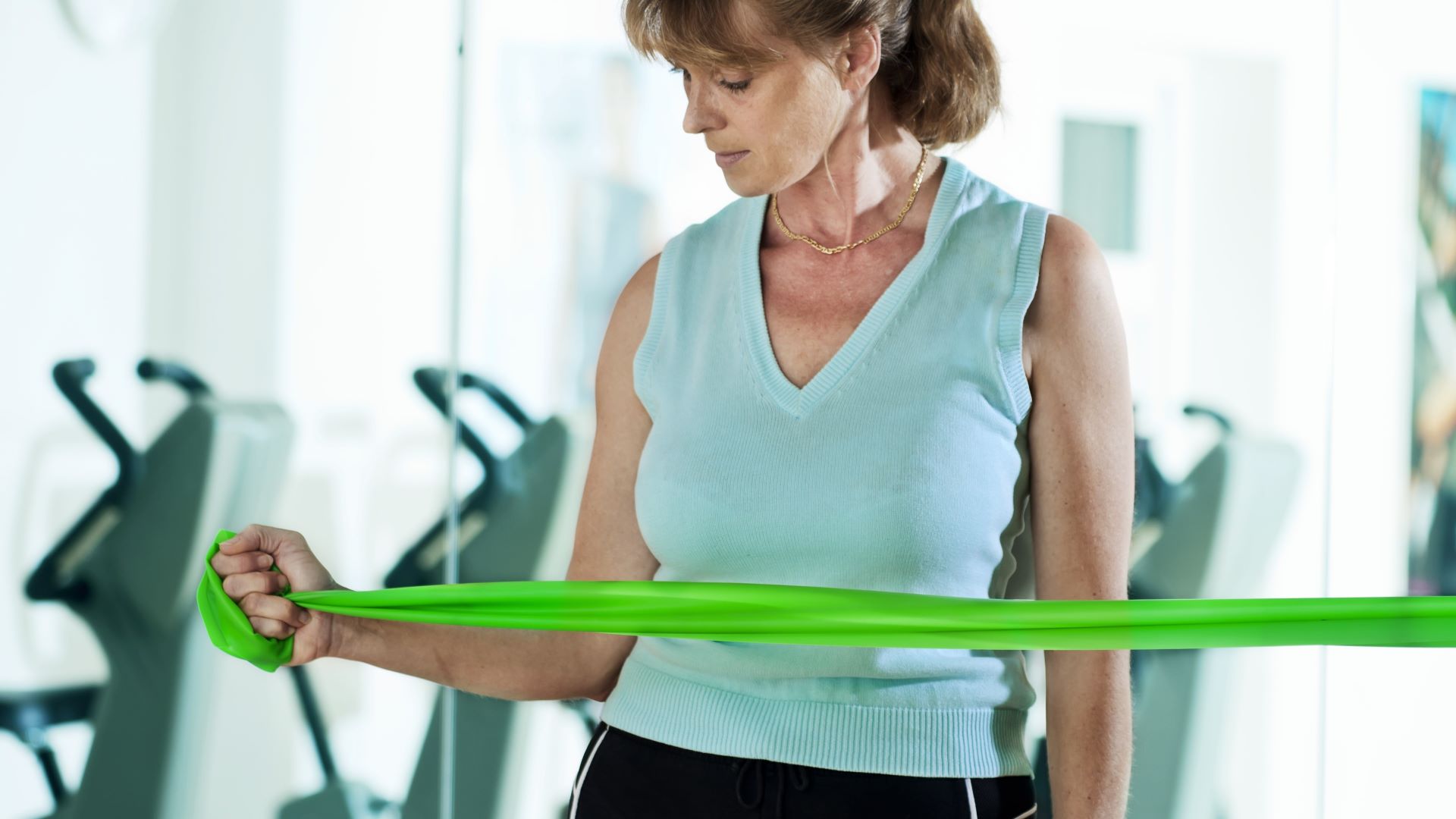
Start your week with achievable workout ideas, health tips and wellbeing advice in your inbox.
You are now subscribed
Your newsletter sign-up was successful
It's important to keep your shoulders strong and supple with a wide range of exercises.
The lynchpin of your shoulder is the rotator cuff, a group of muscles and tendons that hold the joint in its socket. You might have seen some claims batted about on the internet, saying that rotator cuff drills will "bulletproof your shoulders", making them stronger and less injury-prone.
The problem with these types of exercises is that they tend to work the rotator cuff through just one plane of movement, so they don’t reflect the full spectrum of shoulder-related activities you do in real life.
"In everyday life, your rotator cuff makes micro-adjustments to provide dynamic stability in your shoulder," says trainer and strength coach Jason Pak.
Pak says it's important to incorporate mobility and stability exercises into your shoulder workouts, instead of solely focusing on rotational work. Here's what he recommends, in his recent Instagram vid.
A post shared by Jason Pak & Lauren Pak (@jasonandlaurenpak)
A photo posted by on
Five moves for improving shoulder strength and stability
1. Banded cat-cow
Pak says this move will help with your T-spine mobility. T-spine stands for thoracic spine, which is the top part of your spine from the base of your neck to the bottom of your ribcage. Tight muscles in this area will compromise your shoulder mobility, which is why targeting them with stretching and strengthening moves is important.
2. Bear plank or tall plank with shoulder tap
This is an example of a closed-chain movement, which means that one part of your body is pushing against a fixed surface. In this case, your hands and feet are pushing against the floor.
Start your week with achievable workout ideas, health tips and wellbeing advice in your inbox.
These moves are often useful for strengthening multiple joints and muscles; doing this particular exercise will strengthen your core and back, while your shoulder works hard to stay stable.
3. Kettlebell Turkish get-up and press
This is an open-chain exercise as the arm pressing the kettlebell is free to move. This type of exercise is often good for isolating particular muscles or muscle groups. In this case, the shoulder joint and muscles support the weight of kettlebell are challenged by the load.
4. Gym ball work
This is a reactive stability move, which will improve the reaction time of your shoulder muscles when they're called into action to keep you stable. You can do it against a wall, or try doing it on an upturned Bosu ball on the floor, if you need more of a challenge.
5. Rotator cuff drills
Yes, you can still do these. They’re a popular way to strengthen the shoulders for reason, but they should be supported by other mobility and stability work in your routine.
If you want more rotator cuff drills, visit our sister site Coach and check out this three-move rotator cuff shoulder workout.
The importance of shoulder strength and stability
Your shoulders play a vital role in posture so it’s important they’re healthy and strong.
Physiotherapist and director of Complete Pilates Helen O'Leary says: "Anatomically the shoulder is a shallow ball-and-socket joint, which makes it inherently unstable. This causes it to be at higher risk of subluxation [partial dislocation] or dislocation than a deeper ball-and-socket joint, such as the hip joint.”
If you’re looking for more tips and tricks on how to strengthen, stabilize and mobilize your shoulders, try yoga for shoulder mobility and strength or this seven-move shoulders and core stability workout.

Lou Mudge is a Health Writer at Future Plc, working across Fit&Well and Coach. She previously worked for Live Science, and regularly writes for Space.com and Pet's Radar. Based in Bath, UK, she has a passion for food, nutrition and health and is eager to demystify diet culture in order to make health and fitness accessible to everybody.
Multiple diagnoses in her early twenties sparked an interest in the gut-brain axis and the impact that diet and exercise can have on both physical and mental health. She was put on the FODMAP elimination diet during this time and learned to adapt recipes to fit these parameters, while retaining core flavors and textures, and now enjoys cooking for gut health.
